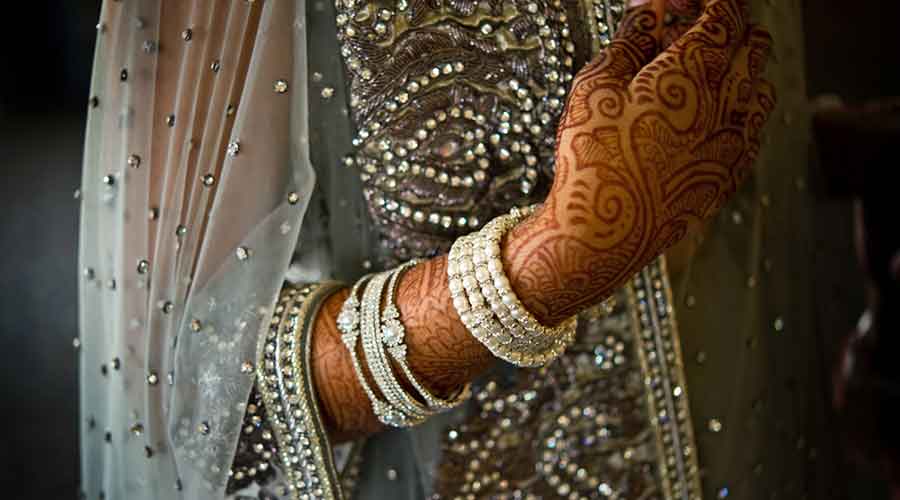Women from Pakistan-occupied Kashmir and Pakistan, married to Kashmiris who have returned to India under a government rehabilitation scheme, on Monday asked the Narendra Modi government to deport them to their country, regretting they are denied rights available to other women here.
The women have been protesting for their rights for around a decade and their fresh demand has come as tens of thousands of people who migrated from Pakistan to Jammu and Kashmir in the wake of Partition have been granted domicile and other rights here following the abrogation of Article 370.
But these brides, more than half of them from Pakistan-occupied Kashmir which India claims as its own territory, are still waiting for travel documents that would allow them to visit their families across the border.
“Our only fault is that we chose to marry Kashmiris but we are being denied nationality… If the government does not want to treat us fairly, so be it, but we are requesting them to deport us back,” Saira Javaid, a Pakistani married to a Kupwara resident, said at a news conference in Srinagar.
Saira is among hundreds of “Pakistani brides” whose Kashmiri husbands had crossed to the Pakistani side for arms training or because of alleged harassment, but chose to return under the Omar Abdullah government’s informal “rehabilitation scheme” in 2010.
The scheme was available to those who had crossed to the other side of the Line of Control between 1989 and 2009. In 2017, the state government revealed that 377 “former militants”, along with 864 family members, had returned since 2010.
They could not return through “designated routes” and came via Bangladesh and Nepal, apparently because India and Pakistan did not reach any agreement on them.
Far from being rehabilitated, the families said they were always treated as pariahs and denied the very basic right of meeting their families on the other side of the divide.
Uzma Raees, who lived in Muzaffarabad in PoK and whose family is originally from Srinagar, said her father had passed away last month after longing for years to meet her.
“My grandfather was originally from Srinagar’s Fateh Kadal locality who migrated to Muzaffarabad (decades back). I am married to a Pulwama resident but ever since we returned to the Valley, I have been fighting for a passport so that I could meet my family. But I never got it, neither for myself nor my little daughter,” Uzma told The Telegraph.
“My father died in that grief. I could not see his face and am still in mourning. I fear losing my other family members also and might never be able to see them again.”
Taiba Akhtar, from Pakistan’s Abbottabad, said the only time she could see her parents was in 2013 when she had to use a telescope to spy them across the speedy Kishan Ganga stream in border Teetwal area of Kupwara.
“My school (where she worked as a teacher) saw I was always upset and arranged an excursion to Teetwal. I informed my family over phone to visit the spot on a particular date. I saw my parents from a distance and I wished to jump into the river so that I could hug them. But others prevented me from doing so,” she said.
“If the government treats us as illegal immigrants, there is a law…. They can jail us and then deport us.”










